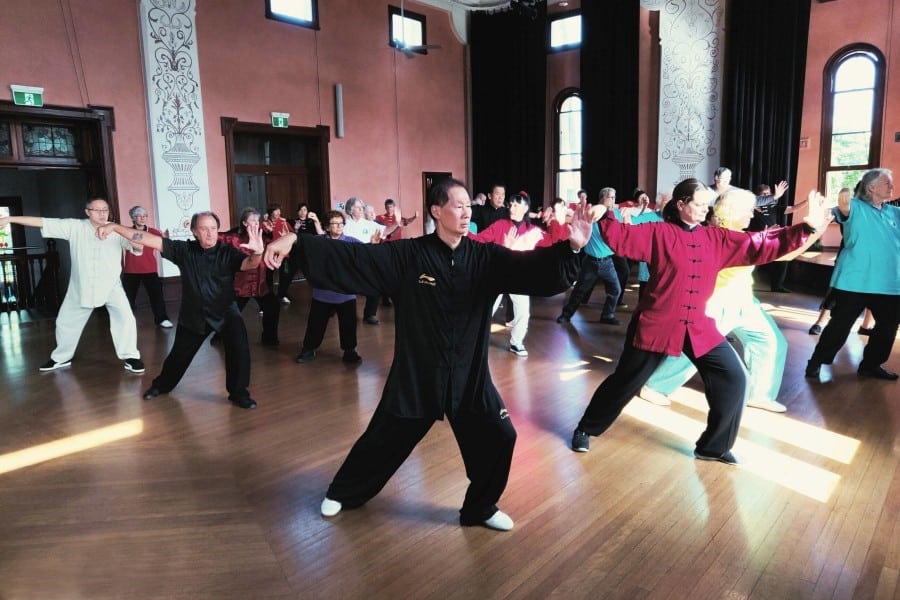Each year, the month of April marks April Falls, a campaign that aims to raise awareness of falls prevention and help those at risk of falling to stay on their feet.
Having good balance reduces the risk of trips and falls and helps us to live independently as we get older, which is why this year’s April Falls theme is ‘Better Balance for Fall Prevention’.
Central Coast Local Health District (CCLHD) physiotherapist Matt Egan emphasises the importance of doing strength and balance exercises before you develop a risk of falls.
“Your balance can begin to deteriorate in your 50s, but many people wait until they’re older and frailer to do something about it,” Mr Egan said.
“Falls can be really significant and life changing events as we get older so it’s important to act on early changes to your balance, strength and vision. Don’t wait until having a fall to take action.” he said.
Mr Egan recommends simple tests to do at home to check on your balance, like standing on one leg for 60 seconds and standing on one leg with your eyes closed, without wobbling. It’s best to do these tests near a kitchen bench in case you need to grab it for safety.
If you struggle, there is help available.
“People assume falls are just a normal part of ageing. But most causes of falls are preventable and there’s a lot people can do to reduce their risk of falling,” he said.
NSW Health offers a range of programs to help older adults with balance, including Healthy and Active for Life, a free 10-week online program and Stepping On, a free seven-week program conducted face to face at community locations across the Central Coast.
Other activities recommended to improve balance include tai chi, yoga and lawn bowls.
For more information visit: www.activeandhealthy.nsw.gov.au
Activity spotlight: Tai chi
Tai chi is a form of light-to-moderate intensity activity combining muscle-strengthening, balance and flexibility training for falls prevention.
Indeed, in a research paper titled ‘World Guidelines on Falls Prevention and Management for Older Adults: A Global Initiative’ published in October 2022 by 96 internationally recognised researchers in falls prevention and aging, Tai chi received a “strong recommendation” as an exercise for falls prevention.
Cyril Loa, President of the Tai Chi Association of Australia (TCAA), says tai chi is great for both body and mind.
“One of the things we notice in our classes is how much participants’ ability and confidence improves in their movement sideways, forwards and backwards. Tai chi is a form of moving meditation, so it’s a great way to improve your strength and balance, while being in a relaxed state of mind.
“Building up this strength and confidence is all down to patience and repetition, which is what tai chi helps instill in participants. That is why it is great for flexibility and coordination, and strengthening your legs and core, because you’re often squatting or standing on one leg, twisting and turning.
“What people don’t realise so much is that tai chi can help address problems like being hunched as it can straighten your posture. It can also improve your bone density too. I’ve seen people in my classes who had weak bone density and after a year of tai chi they have above average bone density.
“Classes are friendly and welcome people of all abilities, so I would urge anyone looking to improve their balance and reduce their risk of falls to give tai chi a go.”
You can find details of tai chi classes on the TCAA website: www.taichiaustralia.com/schools.html
